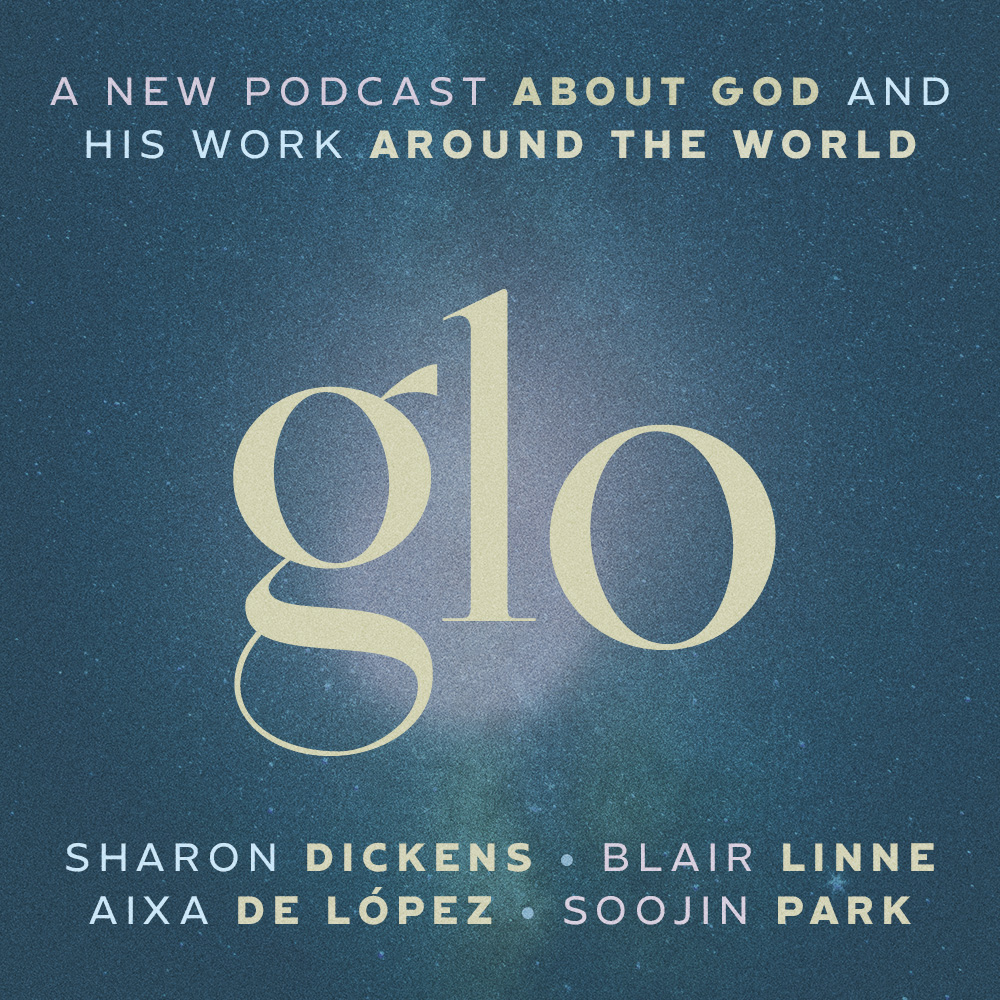The world is a confusing place right now. We believe that faithful proclamation of the gospel is what our hostile and disoriented world needs. Do you believe that too? Help TGC bring biblical wisdom to the confusing issues across the world by making a gift to our international work.
Isn’t the Christian faith just a Western, white man’s religion? Don’t Christians suppress natural human desires for authenticity and replace them with a colonialist, heteronormative, and narrow vision of sexuality? Isn’t Christianity an oppressive belief system?
I studied in the U.S. and the U.K. before spending four years in pastoral ministry at Covenant City Church in Jakarta, Indonesia. At the tail end of 2021, I returned to the States to take up a teaching post at Reformed Theological Seminary When I arrived, I was intrigued by this new line of objections against the Christian faith. The objections weren’t of the same sort I encountered here a decade ago. They were also different from those I heard in my home city of Jakarta.
Several realities I experienced in Indonesia can speak to the objections Western people raise about the faith. Learning from the global church helps believers in the West zoom out, put aside their assumptions, and see afresh the relevance and power of truths that may no longer seem relevant and powerful. Consider these four realities from Jakarta.
Religious Pluralism
Indonesia is a remarkably diverse nation with many faiths, and the city of Jakarta is a melting pot of different religions. Growing up, I attended a Christian school, celebrated the breaking of fasts with Muslim friends during Ramadan, and visited temples recreationally in Bali.
While Indonesia is majority Muslim, with only 9 to 13 percent of citizens professing Christianity, the country’s constitution explicitly recognizes six major religions as legitimate. Further, that percentage of the population equals 28 to 30 million Christians, a number larger than the entire population of Australia.
Learning from the global church helps believers in the West zoom out, put aside their assumptions, and see afresh the relevance and power of truths that may no longer seem relevant and powerful.
Learning from the global church helps believers in the West zoom out, put aside their assumptions, and see afresh the relevance and power of truths that may no longer seem relevant and powerful.
In the West, there’s growing skepticism about theism and the Christian faith, but that’s not the case in Jakarta. One would be hard-pressed to find a convinced atheist or materialist, and the people who profess secular worldviews are those who have been educated in or worked in the West.
Religion is pervasive. Our primary challenge was explaining why the Christian message is the only way to salvation. Jakarta has long been a center of world trade. It’s a financial center with an educated population, but for most in that culture, common sense dictates there are many gods, many ways of salvation. What does this say about naturalist and materialist presuppositions in the West? Are they as common as many believe?
Porous and Enchanted Worldview
Jakartan life, to use Charles Taylor’s term, is porous in every way. People have an enchanted view of the world, one where spiritual forces cross into and shape everyday life.
Opening a business often means inviting both Catholic priests and Muslim imams to (at different times) bless the work and protect the business from malicious spirits. Couples often celebrate multiple wedding ceremonies, one to appease the Catholic side of the family and another to appease the Buddhist side. In Jakarta, unwanted circumstances are often attributed to curses, fate, or the wrath of a deceased ancestor. Parents advise their children not to associate with certain people due to a fortune teller’s warnings, and you’ll rarely find unlucky numbers like 4 or 13 marking the floors of a building. Pilgrimages to Mecca or ancestors’ tombs are encouraged. Even the most secular often retain these supernatural beliefs.
When I first read Augustine’s City of God, I was struck by the similarity between the polytheistic Greco-Roman world he describes and Jakarta’s porous society. While ministering in Jakarta has unique challenges, its legends, pilgrimages, rites, and loyalties parallel the society the gospel first encountered. Christians in that world were charged as “atheists” because they argued God cannot be manipulated by earthly works and circumstances.
In Jakarta, we preached that no pilgrimage, rite, or magic word can make us clean and that we shouldn’t overanalyze life’s circumstances thinking they contain secret supernatural messages. We preached that God can only be known in Christ and his Scriptures, not through intermediaries, prophets, or signs. We taught the Creator-creature distinction and showed from the Bible that God cannot be correlated with any immediate physical location. The Christianity we preached, while rooted in creedal and confessional orthodoxy, wasn’t seen as older or traditional but as remarkably progressive.
Sexual Ethics in a Culture of Shame and Taboo
In Jakarta, Christianity’s sexual ethic isn’t considered controversial. Rather, it’s seen as a strength. Muslims are thankful Christians believe premarital sex is a sin, that marriage is for a man and a woman, and that gender is rooted in creation. Confucianists are glad to see the Bible honors the family. The Bible’s sexual ethic is considered obvious and in accordance with natural law.
That’s not to say no one experiences same-sex attraction, or that no one is having sex outside of marriage, but these Jakartans recognize they’re going against the grain, and converts to the Christian faith are clear God is concerned with how they ought to live sexually.
In Jakarta, we preached that no pilgrimage, rite, or magic word can make us clean and that we shouldn’t overanalyze life’s circumstances thinking they contain secret supernatural messages.
In Jakarta, we preached that no pilgrimage, rite, or magic word can make us clean and that we shouldn’t overanalyze life’s circumstances thinking they contain secret supernatural messages.
When I returned to the States, I was surprised to hear Christianity decried as a “white, heteronormative, and cisgender” religion meant to suppress human nature’s natural instincts. Far from it. What’s perceived as “white” and “Western” in Jakarta isn’t Christianity’s sexual ethic but rather secularism’s promiscuity and transgender ideology. Those in the U.S. who disagree with Christianity’s sexual values are also implicitly saying Indonesian society is backward, in the dark, and needs to be “enlightened” or Westernized.
In many ways, Jakartans are more likely to share Christianity’s sexual ethic, but they feel a great sense of guilt and shame when they fall short of societal expectations. They see extramarital sex not merely as wrong but as taboo. Promiscuity brings shame to both self and family.
To those who experience social guilt and shame, Christianity announces a better way. It calls sin by name, depends on Christ’s blood for absolute cleansing, and calls sinners to be made new in him. Our church welcomed those who struggled yet who were committed to confessing sin and living in accordance with biblical teaching. We welcomed those who chose to be open about their struggles rather than hide in shame. In the Indonesian context, the temptation is to capitulate to cultural expectations and be harsher. But sinners found the church could be a forgiving community because of the forgiveness won by Christ’s blood.
Family, Tradition, and Authority
Indonesians have an understanding of reasoning and authority based in an oral tradition passed down from one generation to another, usually by the eldest living family member. This is a person-centered view of authority, not by merit but by age and place in the family. (Or rather, age is the main criterion for merit.)
The view of family we encountered in Jakarta was normally that of a single, growing family across time. Marriages weren’t understood as creating a new family but as extending the family, and a family’s eldest members had responsibility for this large family. They continually made efforts to provide for their children, grandchildren, and even great-grandchildren.
In the Indonesian context, a person’s identity isn’t found primarily in his or her interior psychological life. As my father often said, “Following your passion is a Western man’s luxury and is usually a sure path to bankruptcy.” The prevalent Western view that happiness and identity are found by following one’s passions and sexual feelings is an unprovable and parochial assumption. Jakartans instead define identity with respect to family lineage and one’s place within that family. A person follows the religion of the family, and there’s often an expectation he or she should marry a member of the same race and culture to propagate the family’s identity.
To those who experience social guilt and shame, Christianity announces a better way. It calls sin by name, depends on Christ’s blood for absolute cleansing, and calls sinners to be made new in him.
To those who experience social guilt and shame, Christianity announces a better way. It calls sin by name, depends on Christ’s blood for absolute cleansing, and calls sinners to be made new in him.
The Christian faith challenges both Indonesia’s family-centered view of identity and the Western psychologically centered view of identity. As Larry Hurtado has shown, rather than an epistemology centered on individuals or familial tradition, Christians are called not to fear the traditions of men but to follow God and his will as disclosed in the Scriptures.
In Jakarta, Christianity can be viewed as a threat to the cohesion of one’s family identity and relations. After all, Christians are called to leave family idols and to follow the one true God exclusively. They must view their unity in Christ as more precious and deeper than mere blood relations. For this reason, it was important for us at Covenant City Church to engage with controversial issues by teaching the permissibility and beauty of both intermarriage across racial bounds and friendships between Chinese Indonesians and native Indonesians (a historically ruptured relationship), and what honoring your elders and children looks like in Christ.
As a post-Christian society advances in the States and beyond, we do well to listen to global contexts like Jakarta. They show us that the objections and challenges that seem self-evident and universal in the West are more contingent and contextualized than we immediately see. The Christian faith, after all, is neither Western nor Eastern but cosmic, having to do with the God of the universe who became incarnate in the person of Jesus of Nazareth. They encourage us to have confidence the cosmic gospel will continue to do its work all over the world.
N. Gray Sutanto (PhD, University of Edinburgh) is assistant professor of systematic theology at Reformed Theological Seminary in Washington, DC. He is the author of God and Knowledge (Bloomsbury, 2020), coauthor of Neo-Calvinism: A Theological Introduction (Lexham, 2023), cotranslator of Herman Bavinck’s Christian Worldview (Crossway, 2019), and coeditor of Handbook to Neo-Calvinism (T&T Clark, 2024). Gray is married to Indita and they have a daughter. He is an ordained minister in the International Presbyterian Church. You can follow him on Twitter.
source















Post comments (0)